French
Overview
The intent of our Modern Foreign Languages (French) curriculum is to deliver a curriculum which is accessible to all and one that will maximize the outcomes for every child so that they are exposed to a new language and different cultures.
As a result of this they will:
- Increase and develop their language skills
- Increase their understanding of listening, reading, writing and spoken language (oracy links)
- Develop and use their skills to be able to communicate in a new way
- Develop their interest of the wider world, arousing their curiosity and motivation to learn
- To allow a rich exposure to language will develop an increased tolerance and respect
Intent
At Lodge Primary School, our vision is to create passionate learners by sparking curiosity for other languages and their cultures, focusing on the value of languages in our community and in the wider world.
Learning languages supports the development of social and cultural capital as well as intercultural understanding. All children will experience a feeling of progress and success through learning French and feel confident to articulate themselves and engage in conversations, asking and answering questions and therefore being excited to continue learning languages at secondary school. This links to the school’s core values of being enthusiastic, resilient and aspirational learners.
Through rich and varied curriculum experiences, children will foster positive attitudes to learning new languages. Lodge learners will develop a ‘love of language’ and aspire by actively taking part in listening activities and responding to spoken language by reading and writing words, phrases and sentences.
Our children will be able to acquire and develop deep language skills, including an understanding of grammar and how it compares to English. A rich exposure to language will develop an increased tolerance and respect for our continually growing local community and spark a flame for life-long language skills.
Purpose of Study
Learning a foreign language is a liberation from insularity and provides an essential opening to other cultures. A high-quality language education should foster pupils’ curiosity and deepen their understanding of the world. The teaching should enable pupils to express their ideas and thoughts in another language and to understand and respond to its speakers, both in speech and in writing. It should also provide opportunities for them to communicate for practical purposes, learn new ways of thinking and read great literature in the original language.
The learning of a foreign language can provide a valuable educational, social and cultural experience for pupils – providing them with:
- Opportunities to communicate for practical purposes in the wider world.
- A foundation for further learning of languages beyond KS2, equipping pupils to study and work in other countries.
- An essential opening to other cultures and a widening of experiences and aspiration.
- A new perspective on the world, encouraging them to understand their own cultures and those of others.
Implementation
|
Displays/Working walls |
A whole school French display will be used to give children daily reminders of the language learnt in school and work will be added to this from lessons taught. French displays are in each classroom (KS1-KS2) to ensure consistency and exposure to the language on a daily basis. These displays also enable children to access key vocabulary and subject specific content. |
|
Subject specific vocabulary |
Identified through subject specific displays and highlighted to the children at the beginning of lessons. Subject specific vocabulary is also revisited through assemblies and knowledge quizzes. |
|
Big picture and daily review |
Reviews of previous learning each lesson to allow children to build on previous learning. Children to understand the ‘bigger picture’ of learning languages and the importance it has in a global community. This enables them to become global citizens and aspire to travel and converse with other communities. |
|
Provision in EYFS/KS1 |
Lessons commence in KS2 but early exposure is essential. French will be exposed to EYFS and KS1 through spoken form. This may be through learning greetings and key words or phrases. Themed days such as Bastille Day also support pupils to develop their speaking and listening skills. |
|
Pedagogy
|
Oak Academy resources and videos are used to support the pedagogy of French. |
|
Assessment |
Class teachers use initial self-assessment prior to each unit being taught. These assessments support teaching to assess progress made by each child. Adaptations are then made accordingly. |
|
Outdoor learning |
We recognise that children learn in a variety of ways, and so where appropriate, children will learn outside the classroom and take part in themed days to promote French. This may also include displays around the school. |
|
Approaches to teaching |
Class teachers ensure there is a good balance of whole class, group work. The platform used is online and is easily accessible for all learners. Work may need additional scaffolding to support learners with additional needs. |
|
Teaching Sequence in French |
Big picture: To be able to develop a ‘love of language’ and aspire by actively taking part in listening activities and responding to spoken language by reading and writing words, phrases and sentences. |
|
Weekly review: Brief review of learning covered in previous lesson/s |
|
|
Specify key vocabulary to be used and understood |
|
|
To be able to listen and respond in new language |
|
|
To read and write in new language |
|
|
Communicate their new knowledge and understanding appropriately |
|
|
Develop their interest of the wider world, arousing their curiosity and motivation to learn. A rich exposure to language will develop increased tolerance and respect for other communities. |
|
Possible pedagogical approaches used in French |
Behaviourism |
Direct teacher instruction; modelling of skills and techniques; demonstration
|
|
constructivism |
E - learning, outdoor learning/events
|
|
|
Social constructivism |
Teacher modelling; questioning; mix of individual, paired and group instruction |
|
|
Liberationism |
Pupil-led learning; opportunities to showcase learning (ORACY)
|
|
|
Learning, working and speaking |
Being introduced to the key vocabulary and high expectations of pupils taking part in listening activities and responding to spoken language by reading and writing words, phrases and sentences.
|
Impact
We teach three core strands of essential knowledge:

- Phonics – the key components of the sound-writing relationship
- Vocabulary – a set of the most frequently used words
- Grammar – the essential building blocks required to create simple sentences independently (including gender of nouns, singular and plural forms, adjectives (place and agreement), and the conjugation of key verbs)
Our French curriculum is designed to enable our children to:
- Develop linguistic and communicative competence
- Extend their knowledge of how language works
- Explore similarities and differences between French, any heritage languages our children have, and English
The teaching of a foreign language to every child in KS2 is a statutory requirement, as set out in the National Curriculum Programmes of Study (2014).
In line with the NC PoS, our children learn to:
- Listen and show understanding by joining in and responding
- Link the sound, spelling and meaning of words
- Read aloud with accurate pronunciation
- Read and show understanding of phrases and simple texts
- Speak in sentences
- Describe people, places, things in speech and writing
- Ask and answer questions
- Express opinions
- Write phrases from memory
- Adapt phrases to create new sentences
- Use a dictionary
Our children also learn key cultural and country-specific knowledge. For example, by the end of KS2, our children:
- can name and locate countries where French is spoken
- know the key geographical features of France, including continent, surrounding seas and oceans, main mountains and rivers, capital city
- know the name and some detail about at least one festival or tradition from France
- know at least one typical food from France

